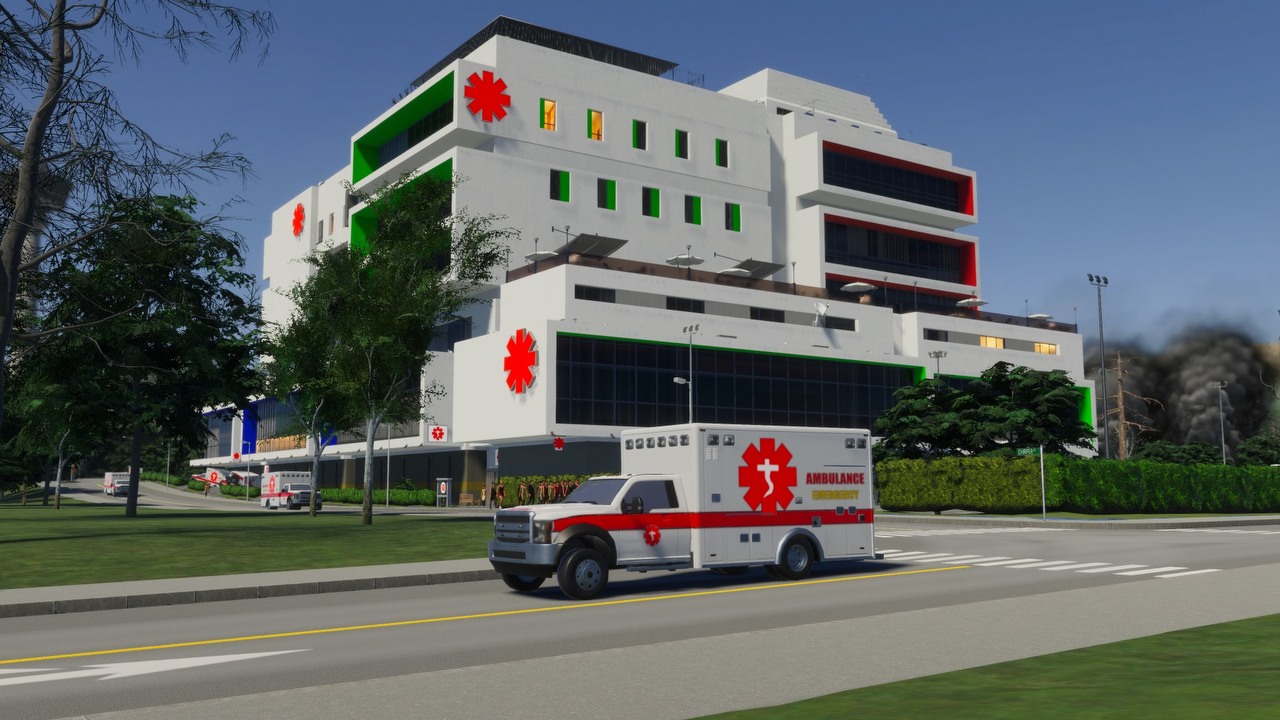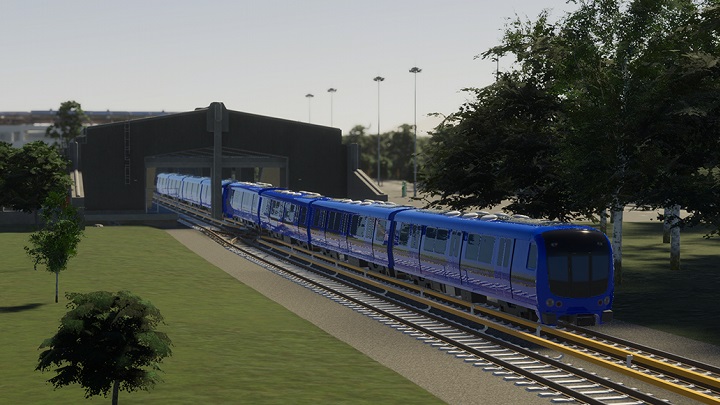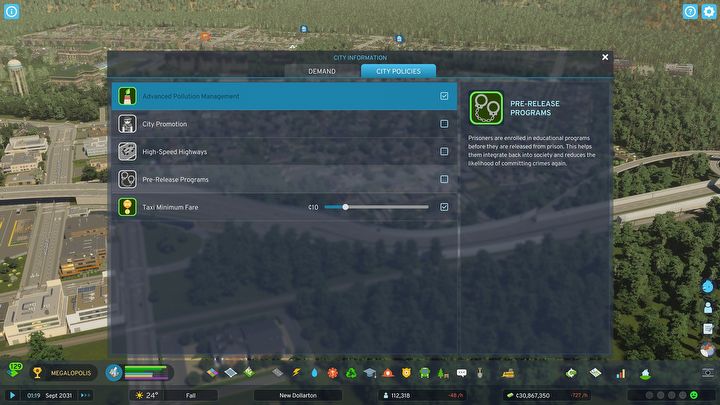Cities: Skylines 2 Services With Significant Changes; New Gameplay Video
Services in Cities: Skylines 2 will be similar about those in the first game, but Colossal Order is preparing considerable changes in their functioning.

Thanks to previous dev diary entries of Colossal Order, we learned details about various aspects of the new city builder developed under the supervision of Paradox Interactive. In passing, the developers also mentioned city services, which are discussed in today's article on Cities: Skylines 2.
This time the developer had to break the text into two parts on Steam to discuss all the changes regarding services in the second Cities: Skylines. Fortunately, the studio, as always, also prepared a short video that summarizes the most important information. You can watch the footage below.
Services in Cities: Skylines 2 advance to a new level
It should be noted that the length of today's entry is mainly the result of a detailed discussion of the numerous services, the access to which players will have to provide for residents of virtual metropolises in Cities: Skylines 2.
- It will probably surprise no one that the sequel will see the return all the basic services from the original Cities: Skylines. Police, health care (and funeral homes), education, waste management, transportation, etc. will be an essential part of city functioning.
- A new feature will be the Communications category, which will bring together recurring postal services and a separate telecommunications (including the Internet).

Nonetheless, as in the game as a whole, there will be significant changes here. Some stem from other mechanics, including modifications in developing and expanding the reach of most services by advancing related buildings (instead of erecting more, as in the first game).
- Improvements will fall into three categories: operational, expansion and "additional buildings." The former will give access to new features, while the latter will only increase the "capacity" of a facility, such as the maximum number of patients or vehicles, or range and productivity.
- Of course, here, too, the principle with buildings will apply, as mentioned in the previous developer's diary: both "advancement" and maintenance of such developed facilities will be expensive. So it will be better to consider whether we definitely need an additional wing in the hospital or an upgrade to the power plant.
- Importantly, players will not have to provide the entire city with equal access to services. Each neighborhood will be given its own values related to resident satisfaction, but will also enable us to determine the operation of services within it (including the cost of using them and water and electricity bills).
In total, there will be 12 "strategies" (policies) in the game: five for districts and seven for the entire city.
Neighborhood policies
Services will be reflected in the value of land - but not as in the first game, where erecting a big number of suitable buildings directly increased the price of land. As mentioned a week ago, in CS 2 the value of land will depend on meeting the needs of the residents of a zone. In other words, on whether the population and companies are willing to pay more rent.
- This is important because different residents will have different needs. This will be determined by their age and situation, among other factors. Office workers will mainly need a quick commute, while families with children must have schools.
- Nevertheless, certain universal needs will have to be met in each zone. Frequent power shortages will effectively discourage residents and businesses from staying in a particular area, and high levels of pollution will cause even the most attractive tourist spots to be avoided by tourists.

Players will be able to set service policies for each district.Source: Colossal Order / Paradox Interactive.
Added to these general changes are a host of minor modifications, such as optional education above elementary school, the ability to import and export services, etc.
If you want to know more details, take a look at the developer's diary on Paradox Interactive's official website, where eight more similar entries will appear in the next few weeks. The upcoming one will deal with mechanics related to the two issues mentioned today: water and electricity.
Premiere of Cities: Skylines 2 will take place on October 24. The title will be released on PC, PlayStation 5 and Xbox Series X/S. In addition, the game will at the same time available on Game Pass.
More for You:
- Paradox Bets on 'Infinite' Games; Company Canceled Nearly Half of Projects Since 2013
- Paradox Showed Gameplay Trailer for Star Trek 4X Strategy; Release Date Revealed
- Cities: Skylines 2 found a way to avoid another wave of death after changes in new update
- Cities: Skylines follows HoI4 and EU4 and receive a paid subscription. First and second installments of the city builder also gets some new features
- Massive Cities: Skylines 2 update expands homelessness system to mimic real life. Colossal Order also adds difficulty levels and improves traffic
0

Author: Jacob Blazewicz
Graduated with a master's degree in Polish Studies from the University of Warsaw with a thesis dedicated to this very subject. Started his adventure with gamepressure.com in 2015, writing in the Newsroom and later also in the film and technology sections (also contributed to the Encyclopedia). Interested in video games (and not only video games) for years. He began with platform games and, to this day, remains a big fan of them (including Metroidvania). Also shows interest in card games (including paper), fighting games, soulslikes, and basically everything about games as such. Marvels at pixelated characters from games dating back to the time of the Game Boy (if not older).
Latest News
- End of remote work and 60 hours a week. Demo of Naughty Dog's new game was born amid a crunch atmosphere
- She's the new Lara Croft, but she still lives in fear. Trauma after Perfect Dark changed the actress' approach to the industry
- „A lot has become lost in translation.” Swen Vincke suggests that the scandal surrounding Divinity is a big misunderstanding
- Stuck in development limbo for years, ARK 2 is now planned for 2028
- Few people know about it, but it's an RPG mixing Dark Souls and NieR that has received excellent reviews on Steam, and its first DLC will be released soon


